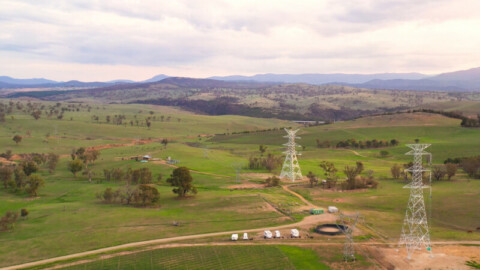A new report released by the Australian Energy Market Commission (AEMC) on 31 October has proposed reforms to help protect consumers who choose to go off-grid, making the process safer and more reliable.
The AEMC has set out a new framework that will require community groups, local councils, developers and other third party providers of stand-alone power systems to comply with jurisdictional regulations on reliability, safety and consumer protections, based on nationally agreed principles.
Microgrids and other types of off-grid power systems are becoming more viable options for some customers as the cost of technologies like rooftop solar and batteries continue to decline. While consumers can currently choose to go off-grid, in most cases they have very limited consumer protections.
The changes outlined in the report would enable those living in remote locations without easy access to the grid, or who wish to disconnect from the grid, to choose an off-grid solution while still having consumer protections in place for things like billing arrangements, reliability and safety standards.
The AEMC has recommended a tiered framework that provides appropriate consumer protections while avoiding unnecessary costs, rather than a one-size-fits-all approach.
The framework includes two main categories of systems:
Larger microgrids supplying anything from more than a few customers to many hundreds of customers, for example a microgrid supplying a small regional town, or a microgrid supplying a small isolated community.
Smaller microgrids supplying a few customers, or supplying only large commercial and industrial customers, or an individual power system where there is a sale of energy. For example, a microgrid connecting two farms, or an individual power system where a retailer provides the system to a customer in return for an ongoing charge.
For larger microgrids, jurisdictions would develop comprehensive regulations covering registration and licensing, obligations to supply and connect, pricing, consumer protections including for vulnerable customers, and reliability and safety standards. These bespoke regulations would fit the local circumstances but be based on national principles to minimise compliance costs for parties with operations in more than one state.
For smaller microgrids, lighter-touch regulation would apply with jurisdictions setting some minimum consumer protections, such as billing requirements, as well as basic requirements for safety, metering and technical standards.
The AEMC has also considered a situation where a microgrid is large enough to support effective competition in generation and retail. Although no such systems exist currently or appear likely to in the foreseeable future, it has recommended any very large microgrids be subject to a coverage test and, if warranted, regulated by the Australian Energy Regulator in the same way as distribution network businesses.
The AEMC has set out an implementation plan for the new framework, including the key changes that jurisdictional governments and regulators will need to make.
The final report, including recommendations and implementation plan, is now with the COAG Energy Council for consideration.
The report is part two in a complete re-design of regulations for stand-alone power systems.
Part one was published on 30 May 2019 and sets out a pathway to enable network businesses to transition remote customers to stand-alone power systems where it is cheaper than maintaining a connection to the grid, while providing customers with the same protections, reliability standards and their choice of retailer. This can reduce costs for all energy consumers by avoiding expensive investment in poles and wires where customer numbers are limited.
The COAG Energy Council’s Senior Committee of Officials has established a working group to progress recommendations from part one of the review. In addition, the AEMC have started developing advice for governments on the required rule changes.
















